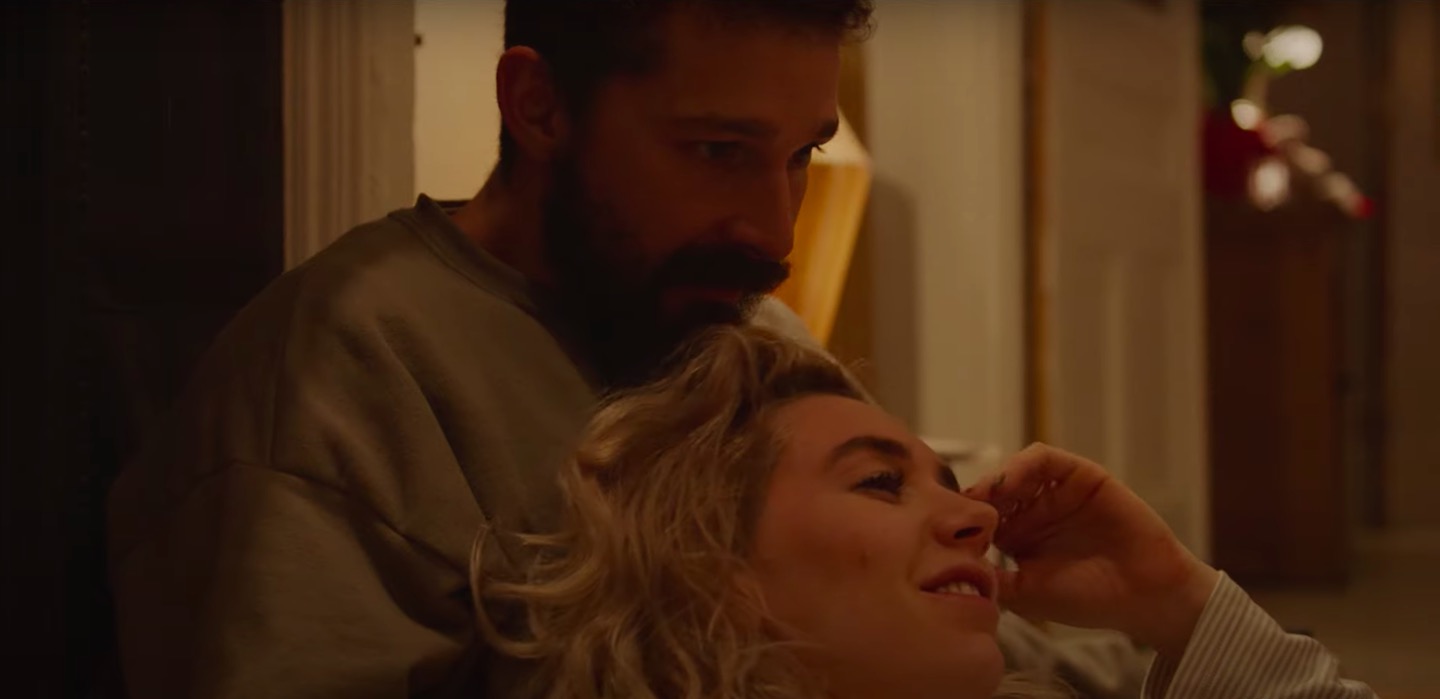
Film Review: Pieces of a Woman
Film Reviews
Pieces of a Woman
Director: Kornél Mundruczó
Bron Studios and Little Lamb
In Theaters: 12.30
Streaming on Netflix 01.07
There are few sequences in film this year that can match the intensity of the first 30 minutes of Pieces of a Woman. In fact, it may be the most exceptionally skillful, immersive and pulse-pounding opening act since Saving Private Ryan, albeit in a very different setting, with the former taking place on the beaches of Normandy in D-Day and the latter in the privacy of a small, loving home.
Martha (Vanessa Kirby, Mission: Impossible – Fallout, The Crown) and Sean (Shia LaBeouf) are a Boston couple on the verge of parenthood, who have spent months preparing for a home delivery for their baby girl. But when Martha goes into labor, her midwife is in the middle of delivering another baby and must send a backup whom the couple hardly know, and unexpected complications during the delivery end in unimaginable tragedy. Thus begins a year-long odyssey for Martha, who must navigate her grief while working through fractious relationships with Sean and her domineering mother (Ellen Burstyn), along with the midwife (Molly Parker, Words on Bathroom Walls), who gets blamed for what happens and faces manslaughter charges.
The home-birth sequence is unforgettable, but the downside to starting off so strong is that it can put the rest of the film in the position of having too high a bar to reach for the rest of its runtime. But even if you’re of the school of thought that after the D-Day sequence in Saving Private Ryan is a pretty standard World War II film, it’s still a good World War II film. Pieces of a Woman was always going to have trouble sustaining the sheer, raw magnitude of its opening, but the premise is so utterly devastating that it obviously lends itself to deep, thoughtful and sometimes brutal character drama. I went into this film expecting it to be hard to get through, but for entirely different reasons than what it gave me.
From the moment the tragedy happens and the title shot comes up, we’ve already witnessed some truly great filmmaking, and if it had been a short film that ended right there, director Kornél Mundruczó (Johanna) would have made something visceral and heart-wrenching. But it keeps going for a little over another 90 minutes, and unfortunately, screenwriter Kata Wéber (Jupiter’s Moon) doesn’t even come close to making good use of that time. A veteran actress and playwright, Wéber has delivered a script that should prove to be a valuable resource for actors seeking dramatic monologues for auditions or workshops, but in terms of telling a cinematic and compelling story, it falls shockingly flat.
Martha’s isolationist behavior and denial of her grief is a realistic and potentially involving storyline, and there a couple of good dialogue-free moments, such as a scene when she is going about her day trying to bury the thought of motherhood and what happened so recently, but is jolted back into reality when she is mesmerized by the face of a little girl who is looking at her with curiosity in a store, and Martha suddenly realizes that she is lactating through her shirt.
If only there was more emphasis put on those bits that give us a glimpse of the powerful, ethereal film that this could have been. But too often, Mundruczó seems to be every bit as lost at this point in the story as Martha, placing too much trust in a bad script, and the movie becomes an almost unbearable mix of sullen and ponderous scenes of nothing much at all or stagy, spotlight-hogging, “look at me—I’m an actor!” moments for for each of the leads, whether it’s Burstyn monologuing about being a holocaust survivor out of nowhere or LeBouf standing alone at the pier letting out a guttural scream. While an exploration of how the loss drives a wedge between Martha and Sean is a necessary plot element, it’s too often done in ways that felt cheap and crass to me, especially an odd subplot involving a lawyer played by Sarah Snook (The Glass Castle).
It’s surprising to me that Mundruczó and Wéber have collaborated before, as the director’s somewhat avante-garde arthouse urges as a filmmaker are so ill-matched to the writer’s mainstream and almost pedestrian style of theatre, where every point that the story is trying to make is spelled out implicitly through dialogue. The performances are all good, but if I’m being honest, I wasn’t blown away by any of them. Kirby does have some great moments as a shattered woman suffering from a severe midwife crisis, but her resolution comes so neatly and so artificially that I felt she wasn’t given the opportunity to create something truly organic and penetrating
Pieces of a Woman shouldn’t be written off entirely, but rarely have I felt so disappointed at not being emotionally crushed by a movie. Of all the things I went into this film steeling myself for, tedium was not among them, yet it it was omnipresent almost throughout –Patrick Gibbs